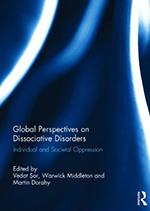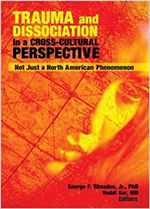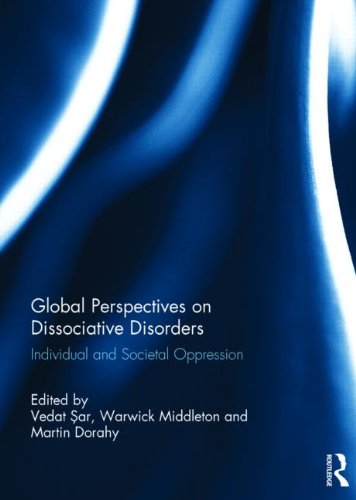Kitaplar

Global Perspectives on Dissociative Disorders: Individual and Societal Oppression
by Vedat Sar, Warwick Middleton, Martin Dorahy
Dissociative disorders are one of the psychiatric consequences of childhood psychological trauma. While oppression is an aspect of traumatic conditions, dissociation undermines resistance to oppression throughout a person’s lifespan. Neither oppression nor dissociation are restricted to particular cultures, and both can affect the individual as well as societies.
This collection engages with the universality of dissociative disorders and their close relationship to oppression. The chapters cover extreme examples such as ongoing incest in adulthood, children and adults forced to kill others, and abusive states in interrogation. Further subjects examined include the utilization of dissociation in postmodern societies to maintain oppression, the oppressive conditions of asylum seekers and the consequences of oppression as they are dealt with in psychotherapy. The final chapter considers how a paedophile pandering network employed multi-layered oppression to prevent the public becoming aware of the widespread and organised abuse of children.
This book will engender interactions between trauma investigators – those whose approach is close clinical observation, those who use instruments to survey groups of individuals, those whose research takes the form of investigative journalism, and those who examine the truth embedded or hidden in documents created for multiple, and at times, disturbing political purposes.

Trauma and Dissociation in a Cross-Cultural Perspective: Not Just a North American Phenomenon
by George F Rhoades Jr (Editor), Vedat Sar (Editor)
An international look at the similarities and differences of long-lasting trauma
Trauma and Dissociation in a Cross-Cultural Perspective examines the psychological, sociological, political, economic, and cultural aspects of trauma and its consequences on people around the world. Dispelling the myth that trauma-related dissociative disorders are a North American phenomenon, this unique book travels through more than a dozen countries to analyze the effects of long-lasting traumatization-both natural and man-made-on adults and children. Working from theoretical and clinical perspectives, the field’s leading experts address trauma in situations that range from the psychological effects of “the Troubles” in Northern Ireland to the emergence of “Hikikomori,” the phenomenon of social withdrawal in Japanese youth.
Reactions to trauma can be both unique according to a person’s culture and similar to the experiences of others around the world. Dissociation, intense grief, anger, and survivor’s guilt are common responses as people split off mentally, physically, and emotionally from the source of the trauma, whether it’s an act of nature (tsunami, earthquake, flood, etc.) or the trauma created by violence, physical, sexual, and emotional abuse, assault, confinement, kidnapping, and war. Trauma and Dissociation in a Cross-Cultural Perspective examines the efforts of clinicians and researchers in Europe, Asia, the Middle East, South America, Australia, and New Zealand to develop sociopsychological methods of providing counseling to people who are suffering physically, emotionally and spiritually, training for professionals counted on to dispense that counseling, and economic and political solutions that might help to limit the devastating effects of natural disasters.
Trauma and Dissociation in a Cross-Cultural Perspective examines:
the tensions between the National Health Service and the private sector in the United Kingdom
how the Mandarin version of the Dissociative Experiences Scale (DES) is used in China
Djinnai, a culture-bound syndrome and possession trance disorder found in Iran
how colonialism has transmitted trauma to the Maori people of New Zealand
transgenerational trauma in Turkey
religious rituals and spirit possession in the Philippines
“memory wars” in Israel
traumatic syndromes among the French
differences in dissociative experiences among Chinese and Japanese youth
childhood trauma in Argentina
and much more
Trauma and Dissociation in a Cross-Cultural Perspective is an enlightening professional resource for anyone working in psychology, sociology, psychiatry, and psychotherapy.

